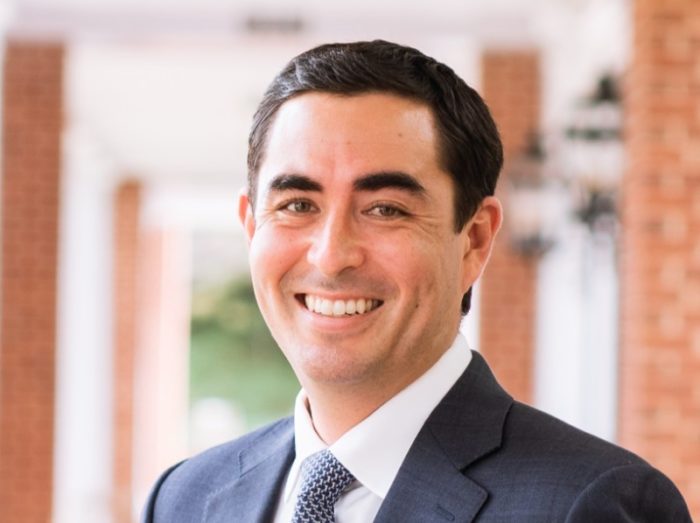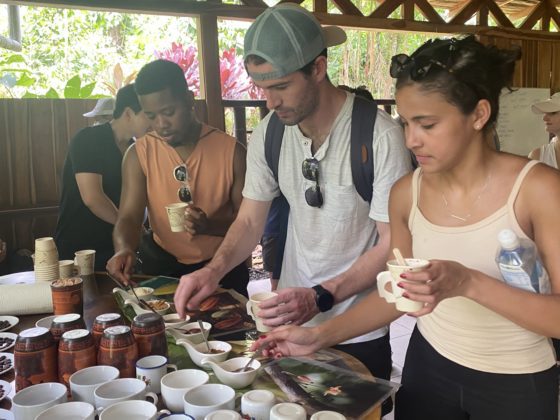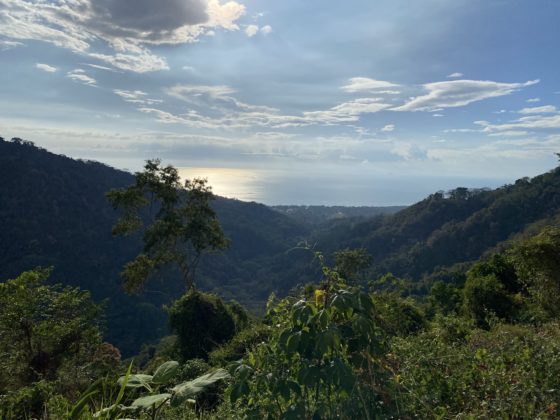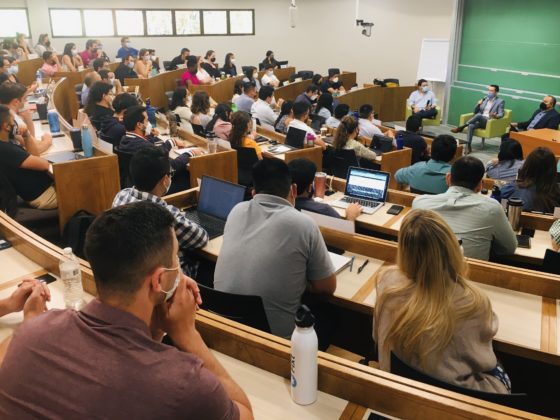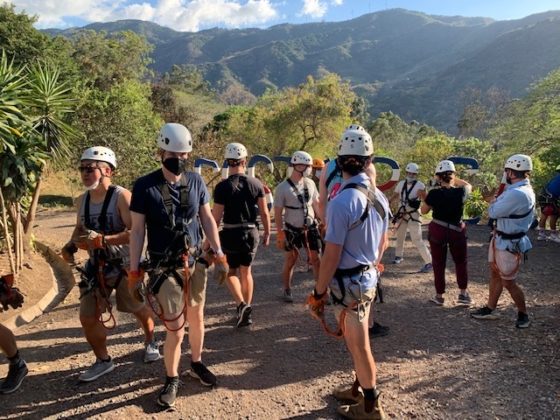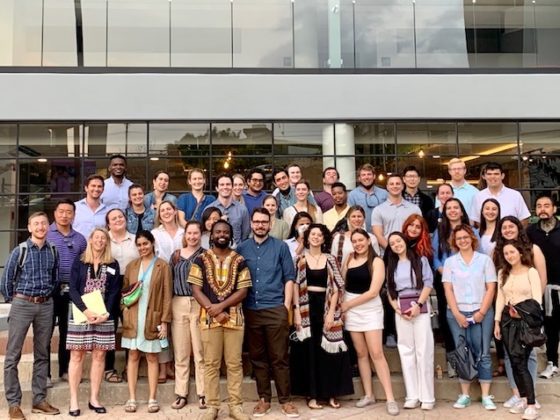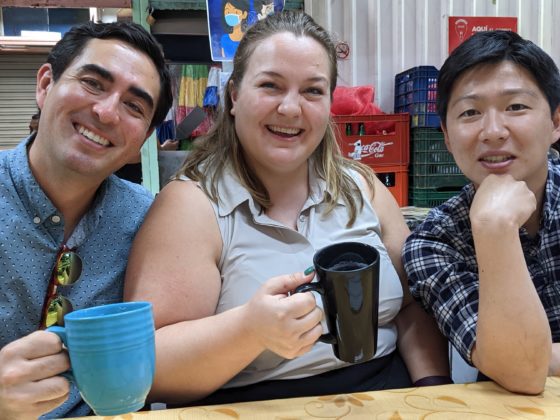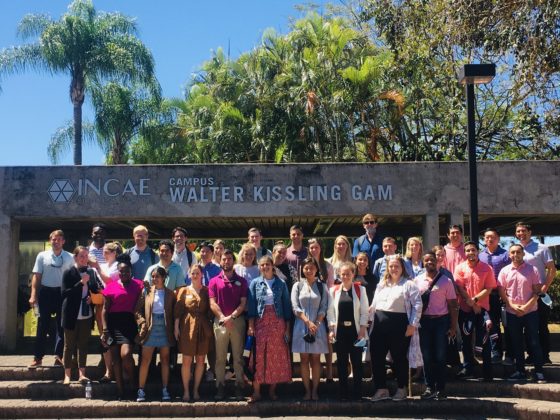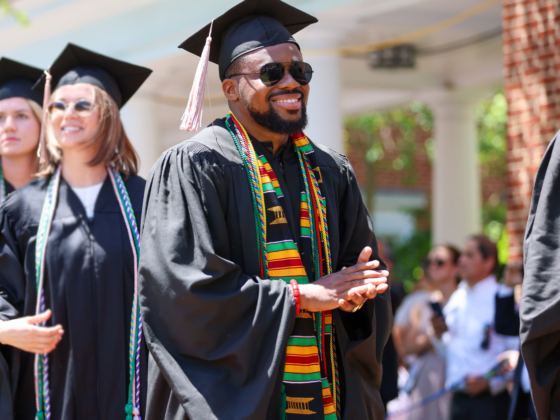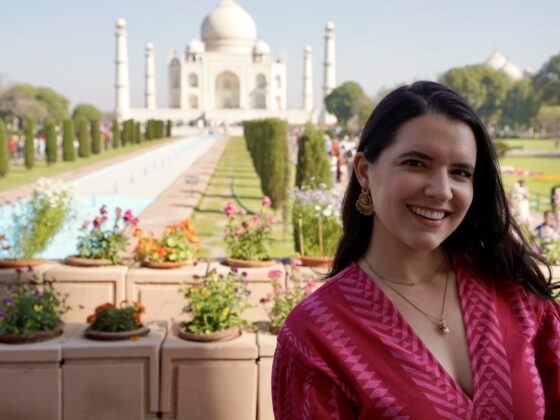Nick Ochi (Class of ’22) recently graduated from Darden, where he focused on general management, entrepreneurship, and sustainability. Last summer, he completed an internship at Loop Industries, a plastic recycling business based out of Montreal, Canada. Upon graduation, Nick will be launching a traditional search fund, Type II Partners. Outside of classes, Nick enjoys spending time outdoors with his wife Adriana (also Darden ’22) and their dog Penny. For more information about Nick Ochi, check out his LinkedIn. Nick recently completed a weeklong Darden Worldwide Course focused on Sustainability in Costa Rica and offered some reflections on his experience.
1) Did the Costa Rica DWC have any particularly appealing characteristics?
In terms of what led me to the Costa Rica DWC, yes, there were absolutely a few characteristics that stood out. At the top of that list was the focus of the program, sustainability. For me, the environment has always been important, and the chance to participate in a Darden-led course focusing on the intersection of environment and business was a great opportunity. That sustainability focus was paired with another huge draw of the program, Costa Rica’s stunning nature. Prior to the course, I had visited Costa Rica once before, but my week there was far from enough, and I knew I’d enjoy seeing more of the country’s beaches, rainforests, volcanos, plants, and animals. I was also extremely excited about the faculty member leading the trip, Carolyn Miles. I knew Carolyn from taking her course Managing Sustainability from the Inside Out, and her experience is just amazing – from working for American Express out of Darden, to launching a hugely successful café chain in Asia, to leading and growing an amazing non-profit, Save the Children.
2) In Costa Rica, you often hear the common greeting “Pura Vida”. How does this reflect the general attitude of Costa Rica?
Great question, and for readers who might not know, ‘Pura Vida’ literally translates to ‘Pure Life.’ Pura Vida is a great reflection of the Costa Rican attitude because it represents the pride and gratitude that ‘Ticos’ (another Spanish or cultural lesson: this is what Costa Ricans proudly call themselves) have in their daily lives. Ticos appreciate their fortune for living in such a unique country. Did you know, for example, that Costa Rica is only the size of West Virginia but that it represents 5% of the world’s total biodiversity? Or that it abolished its military in 1948, has maintained peace over the past 70 years, and has redirected spending toward public education instead? Or that it’s one of the most stable governments and economies in Latin America and has attracted major international investment? Well, good for you if you did, but I certainly didn’t before the DWC. I truly think most Ticos appreciate this type of good fortune, so that’s why you’ll hear ‘Pura Vida!’ used for everything from hello, to goodbye, to thank you, to cheers, and actually just about everything in between!
3) How did your Costa Rican experiences expand your global perspective of sustainability?
Another great question, and frankly, this one is a lot tougher to answer. In a lot of ways, Costa Rica is at the forefront of sustainability. They’ve made country-wide pledges to become carbon neutral, stopped deforestation, gotten the common citizen to buy into protecting national lands, built a meaningful ecotourism economy, and run on over 90% renewable electricity. But at the same time, they’re a gridlocked, car-first nation that doesn’t have a good EV network and k, their renewable power generation has its own downsides. Additionally,, companies we met with struggled defining to define key and basic terms like ‘carbon neutrality,’ and there are simply a ton of areas where they can be more “sustainable.”
So my takeaway is that there’s no silver bullet in the sustainability journey and that even the best actors are going to make mistakes. That said, the push towards global sustainability is a huge journey, and in that journey, it’s crucial that we have and celebrate nations at the forefront, like Costa Rica.
4) What lessons did you learn from your experience that would have been hard, if not impossible, to learn in a domestic setting?
First, Costa Rica aside, the chance to have a global Darden course is simply amazing. Your host city or country becomes the classroom, and you get to experience everything with a unique Darden group, many of whom you might not have known on grounds in Charlottesville!
More specific to Costa Rica though, the takeaway lesson is that at a certain scale, everything is a closed system, and as such, all actions have a cause-and-effect or an action and reaction. Back to the military example, Costa Rica abolished its military in 1948 after a difficult Civil War. Among other factors, this has led to peace in the nation and a stable government, especially compared to neighboring nations in Central and South America. With the national stability, other governments and multinational corporations wanted a presence in Costa Rica, which led to investment and opportunity. To some degree, this global spotlight has then allowed the nation to capitalize on their natural resources through ecotourism, of course, but also through unique mechanisms, such as nature conservation financing that has accounted for $135 million flowing into the nation over the past two years.
So, in a long and unexpected way, the abolition of the military 70 years ago has contributed to Costa Rica standing out and doing well as a global environmental leader today. To me, that’s a great lesson in sustainability itself… that any action – conservation, resource use, education, business model selection, etc. – has a reaction as well.

